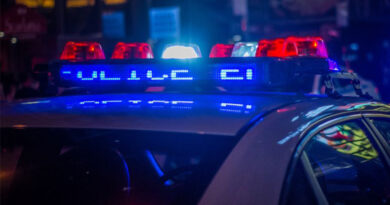Donations Allow Musicians to Keep Playing
For students in Highland Park ISD’s band and orchestra, one donation and recycling program is music to their ears: Play It Again Sam.
In the program, housed under HP Arts, community members can donate instruments for the district’s use. Volunteers then pick up the instruments from families and help distribute them to either the band or orchestra at various schools.
“Lara Whitehouse always seems so grateful,” program chair Kathleen Whalen said. “She never refuses an instrument.”
Whitehouse, the director of bands at McCulloch Intermediate School and Highland Park Middle School, explained how the donated instruments are beneficial, especially for fifth-grade students who are just getting into the music programs.

“There are times that we have students with financial need. We’re able to use those instruments so students can play at no cost,” she said. “It also helps when we have instruments in need of repair so kids have something to play and they’re not just sitting there, unable to participate.”
Donated instruments remain in the district’s inventory until needed, which in turn helps the music programs grow.
“As you graduate to better instruments, you can donate earlier instruments into the program, which allows the program to expand,” said volunteer Molly Pieroni, who has one child in the orchestra program and one in band.
And growth is something dear to volunteers’ hearts, considering that music programs are often cut first when budgets need to be trimmed.
“It always scares me a little bit to think arts might go away for kids if there are budget cuts,” Whalen said. “It’s important to keep the arts strong in schools. If I can be a little bitty part of that contribution, it makes me happy.”
But besides program growth and maintaining the arts, there’s a much simpler, heartfelt purpose for participating to these volunteers.
“It’s their own little community,” said Whalen, who has a daughter in the choir program. “A lot of kids get that from soccer or the football team, but band kids … that’s their team. That’s their family.”
That sense of community doesn’t just include their peers; it includes their teachers, too.
“I love to see them get excited about learning an instrument and seeing the lightbulbs go off,” Whitehouse said. “I like seeing the beginning, and I get to see them all the way through high school. There are few jobs in education where you get to work with them for that amount of time.”
Of course, there’s always the academic aspect in addition to the social.
“This is a way for them to use another part of their brain,” Pieroni said. “It’s more about an outlet to express themselves in a way that might not be easy in an academic setting.”
Both of these reasons combined — the social and academic — provide good motivation for volunteers to work and for community members to donate. After all, the music directors’ goal is to allow each student who wants to play an instrument the opportunity to do so. And no student is denied the opportunity to explore their musical talents.
“It helps no child be excluded, and that’s most important,” Whitehouse said.








